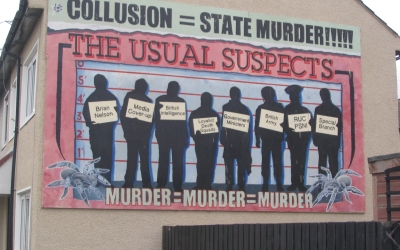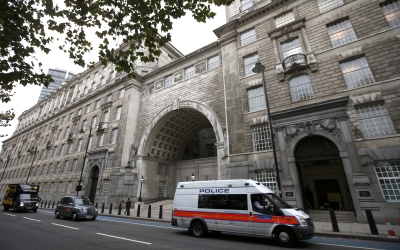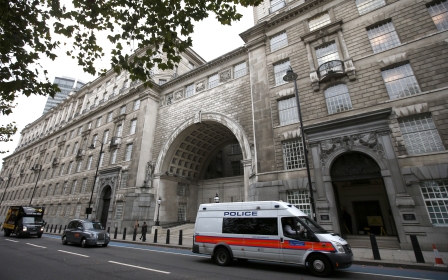British MPs back bill permitting secret agents to commit crimes
A controversial new law that would allow agents recruited by the UK’s security agency, MI5, to commit crimes has been passed by members of parliament, triggering a split in the ranks of the opposition Labour party.
The Covert Human Intelligence Sources (Criminal Conduct) Bill was voted through the House of Commons by 313 votes to 98 on Thursday evening.
The bill now goes to the upper house of the UK Parliament, the House of Lords, for further scrutiny.

The split followed a decision by the Labour leader Keir Starmer - a former chief prosecutor of England and Wales - that his MPs should abstain rather than vote against the bill.
More than 30 of Starmer’s MPs rebelled and voted against the bill, including seven who resigned from his leadership team.
A further group of rebels agreed to abstain but issued a statement saying they were doing so under protest.
The bill is intended to place agent-running practices of long standing on a statutory footing for the first time.
Agents recruited by MI5 officers have always been able to commit crimes - including murder, kidnap and torture - as long as the security agency had sanctioned it.
During the 30-year conflict in Northern Ireland, agents working for MI5, the police and military intelligence are now known to have committed a series of crimes.
In the most notorious case, Pat Finucane, a lawyer in Belfast, was shot dead in front of his wife and children in February 1989. Three official inquiries discovered that the murder was planned by an employee of the UK's Ministry of Defence; the weapons were supplied by a police informer - who had warned his handlers of the planned killing - and the getaway driver was recruited as an agent after his arrest.
Last year the practice of allowing agents to commit crimes faced a legal challenge through the courts. Although the government's lawyers fought off that challenge, MI5 feared that they may lose on appeal.
As a result, the government quickly drew up the Covert Human Intelligence Sources Bill, which it is now pushing through parliament.
It is the second time in recent weeks that Labour has abstained rather than voted against controversial new legislation in the UK.
In September, Starmer instructed his MPs to not vote against the Overseas Operations Bill, which introduces a de facto statute of limitations for members of the UK’s armed forces who commit crimes while serving outside the country.
Middle East Eye delivers independent and unrivalled coverage and analysis of the Middle East, North Africa and beyond. To learn more about republishing this content and the associated fees, please fill out this form. More about MEE can be found here.





